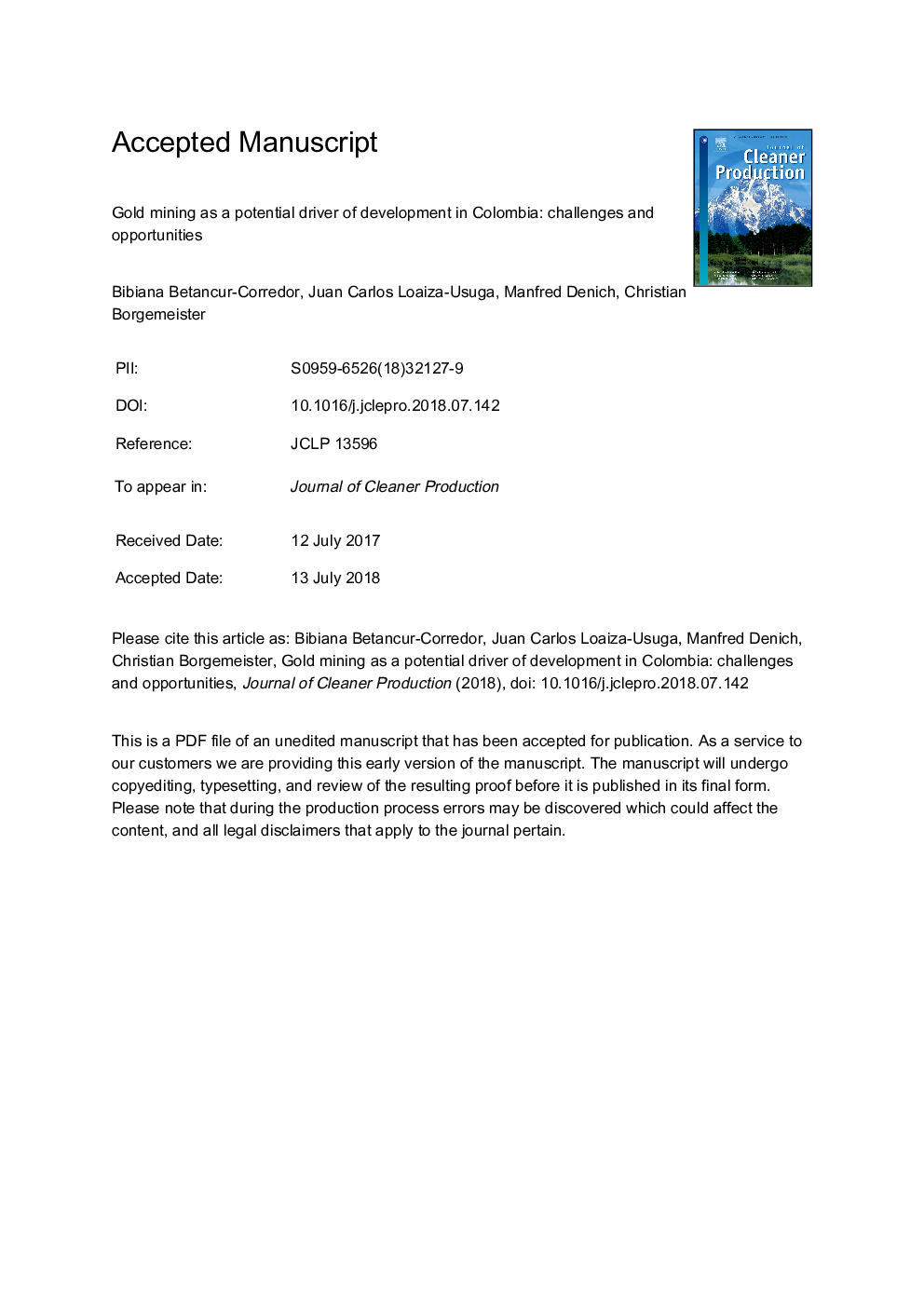| Article ID | Journal | Published Year | Pages | File Type |
|---|---|---|---|---|
| 8093236 | Journal of Cleaner Production | 2018 | 58 Pages |
Abstract
The main environmental challenges of the gold mining sector in Colombia are the pollution of natural ecosystems through the generation of solid waste, emissions of mercury during gold amalgamation, and greenhouse gas emissions. To cope with these challenges, reclamation of waste deposits is being conducted through silviculture, agriculture and reforestation. Furthermore, mercury reduction technologies have been adopted in gold mining areas and trials for remediation of polluted ecosystems are being conducted. The main social challenges of the gold mining sector are high levels of poverty, illegality and violence of communities living in the gold mining areas, as well as high levels of informality of gold mining. To cope with these challenges, the communities are being actively involved in the reclamation schemes of gold mining companies in many areas of the country with the aim to restore their livelihoods and improve their wellbeing. Moreover, elements of corporate social responsibility are being implemented to compensate for the loss of livelihoods, health effects and other social consequences of gold mining activities. To achieve a more sustainable gold mining production in the country, it is necessary to develop a framework for sustainability assessments to support decision making in the sector. Efforts need to be made to improve resource-use efficiency and biodiversity protection. From the social perspective, corporate social responsibility practices should be strengthened, especially towards understanding the needs of the local communities and the creation of mechanisms of participation that could help to prevent social conflicts around gold mining areas.
Related Topics
Physical Sciences and Engineering
Energy
Renewable Energy, Sustainability and the Environment
Authors
Bibiana Betancur-Corredor, Juan Carlos Loaiza-Usuga, Manfred Denich, Christian Borgemeister,
